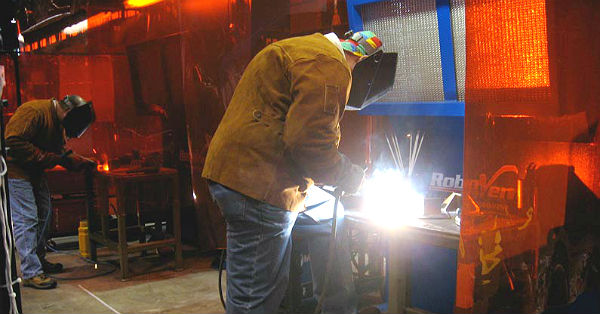Welders Sought Amid Oil and Gas Boom
The booming oil and gas industry and the resurgence of the manufacturing sector in the U.S. – and especially Texas – have created a high demand for skilled welders. The demand is so critical that a shortage of welders looms, according to this recent Businessweek report. The American Welding Society anticipates a shortage of 216,000 welding professionals by 2020.
The oil and gas and petrochemical areas will gain 1.3 million new jobs by 2030, according to the American Petroleum Institute. Companies in the oil and gas sector seek welders who can work on new pipelines and new facilities that are being built over the next decade, as well as repair and maintenance of oil rigs. The demand for welders also comes on the heels of an aging workforce of welders that is retiring.
If you’re considering a career in the petrochemical industry or even manufacturing, then welding may be the occupation for you. Skilled welders have the opportunity to land relatively high-paying jobs and explore exciting career paths.

Welding: A Hi-Tech Skill
Over time, welding has become a high-tech skill because welders can also operate equipment such as robots and sophisticated automated systems that use various methods such as lasers to join metal parts. Welders are trained to use program software for these automated systems.At its core, welding is the method of linking metal parts together using equipment. Through the welding process, the metal parts are exposed to heat, which melts and permanently fuses these pieces together. Welding is the method used to link beams when constructing buildings. It’s used to join pipes in oil refineries and pipelines. More than 50 percent of U.S. products such as computers, cell phones, ships, and farm machinery are created through some form of welding.
Some of the core main tasks that welders perform include:
- Reviewing blueprints and other pertinent documents
- Determining the dimensions that need to be welded
- Using equipment for the welding process
- Maintaining equipment
Source: Bureau of Labor Statistics
The American Welding Society advises welding novices that some of the basic skills needed include problem-solving, patience, reliability and creativity.
Career Paths in Welding
For the most part, fundamental welding skills are transferrable and can be used in other industries. Welders are sought for a variety of projects ranging from rebuilding bridges to working on oil and gas pipelines. There are a variety of career paths in welding, which may include:
- Structural iron worker
- Welding engineer
- Sheet metal worker
- Underwater welder
- Pipefitter
- Welding Inspector
Source: American Welding Society
A potential shortage of welders could mean exciting career opportunities for you if decide to become a welder. The Texas Gulf Coast Community Colleges Consortium offers quality welding training and instruction that includes the latest technologies that will equip students with the welding skills to ensure they have successful careers in the petrochemical industry. Contact your local community college to learn more about welding instruction and future career opportunities.
